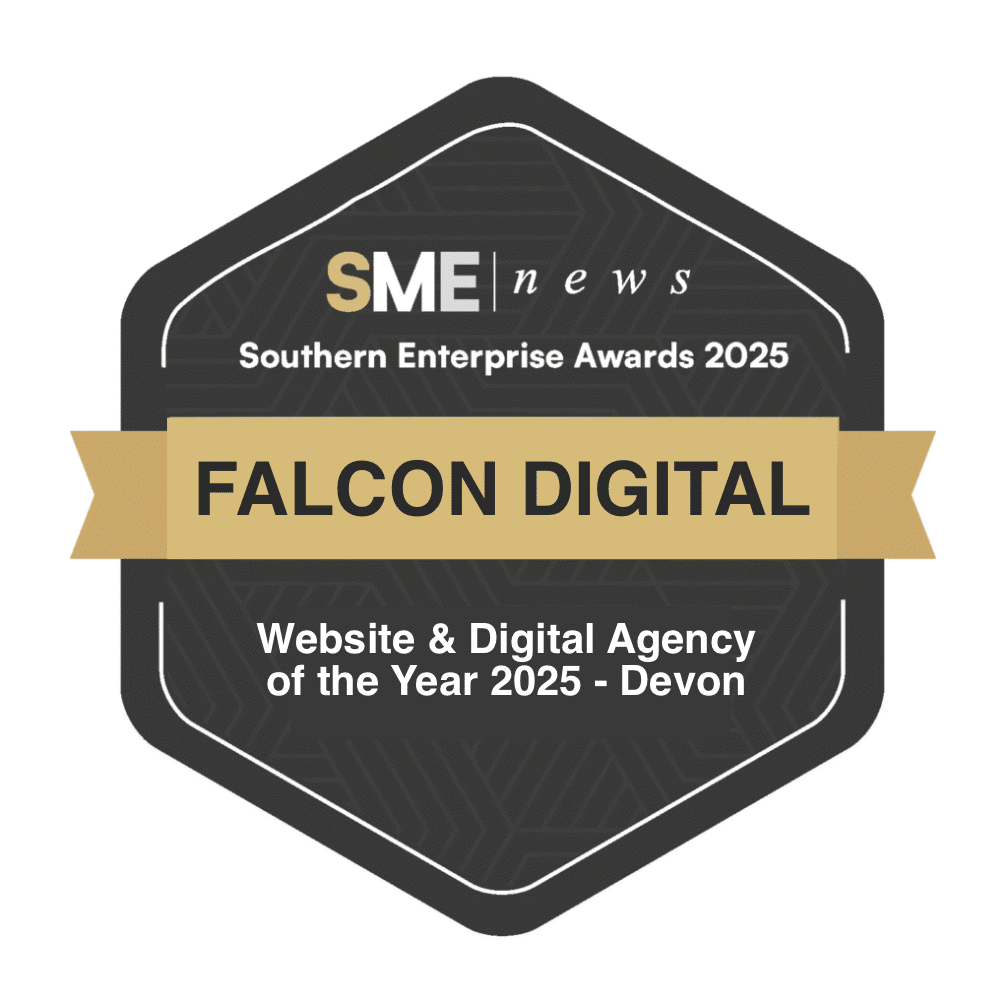Keyword Research
Well examined and detailed keyword research will facilitate strong SEO campaigns and drive quality traffic to your site
Keyword Research
The key to any effective paid advertising campaign and SEO strategy is keyword research. At Falcon Digital, we offer detailed keyword research to determine how your business can reach the audience you demand.
At the beginning of any campaign we work on together, we undertake detailed research to appreciate what users are searching for and where your business can rank. Our prime goal is to discover how we can generate the right kind of traffic for your business. Thorough keyword research can generate more leads and conversions by placing your business in front of the right people.
Despite being experts in our field, you know your business best, which is a challenge to determine the right keywords to define your business. Your customers may hit many touch points before they arrive at your website, so understanding your customer’s journey is key to a great digital marketing campaign.
In tandem with keyword research, Falcon will look at ‘search intent’, which relates to what users are actually looking for when they type a search into Google.
Customer search intent can be broken down into four categories
1. Informational (where the user is seeking answers to a question),
2. Navigational (where the user is looking to find a specific website)
3. Transactional (where the user is looking to buy something from a specific website),
4. Commercial (where the user is looking to buy something, but hasn’t decided on from where)
By understanding customer search intent, we can help you develop a keyword strategy that ensures your business is ranking for specific search terms, depending on the service or product you provide.
To gain a detailed vision of how users find your business on the internet, Falcon Digitals’ detailed keyword research is a great place to kick off a new SEO Strategy or PPC campaign.
What is keyword research is simply?
Keywords are specific words or phrases that people type into a search engine like Google or Bing.
How we can help
At Falcon Digital, we understand the importance of keyword research in optimising your paid advertising or organic SEO strategy. Our team will work to ensure your business reaches its desired target audience.
We use the latest technology and professional research methods to identify the key terms and phrases your audience uses when searching online. This ensures your content is visible and engaging to the relevant users that you want to reach. Our keyword research is comprehensive and thorough, ensuring you have the right information to reach your desired audience and make your business a success.
FAQs
What is keyword research?
Keywords are the words or phrases that, when typed into Google for example, you want your website to be shown as a result for. In simple terms, keyword research is discovering what keywords you are already being found for, and any high traffic terms related to your business.
Performing detailed keyword research allows you to see clearly what your target audience is searching for, the amount of times words and phrases related to your business are searched for and what information those searchers are looking for and is ultimately one of the best things you can to do help your SEO. It lets you see how your target audience behaves online and how prevalent phrases related to your business are.
There are several tools that able to help discover which keywords are most relevant to your business. Whilst it likely that you already have a few keywords in mind, you can also find others that are related to those phrases. These keywords will then form the foundation of the content that is being put onto your website whether it is service or product pages or by using them to create blog content. Ultimately, using detailed keyword research to create content will contribute to improving your SEO score and increase your impressions and engagements.
Falcon Digital will find the search terms you are most usually found for and suggest other phrases around which you can create more relevant content.
Why is keyword research important?
As keyword research involves understanding what your target audience is searching for online when looking for content including products and services, it is the foundation of search engine optimisation. Keyword research is therefore a crucial slice of your digital marketing pie.
If you’re not writing the kind of content people are searching for online your website will not generate traffic irrespective of the volume of content created.
How do you use keywords effectively?
When filtering results for users, search engines use keywords. It is therefore absolutely crucial that you know how to use your keywords and optimise your content appropriately. This is for the purpose of your website being found, indexed and ranked.
How many keywords should I use on a page?
The quantity of keywords used on a page comes down to the unique specifications of your website and individual pages. Your keyword research should aim to have between 5 to10 words.
There are three different types of keywords:
- Primarykeywords - The main focus of your content. The title and subsequent content for a page should reflect this.
- Secondary– Secondary keywords should complement your primary keywords. Find and utilise a handful of secondary keywords which relate to your main focus.
- Additional– Any other keywords that are phrased or spelt differently to your primary and secondary keywords.
Keywords should be used throughout your content. This includes within your main title, URL, meta title and meta description.
As search engine algorithms are able to pick up on unnatural keyword ‘stuffing’ and can penalise you accordingly, it is very important that you use keywords ‘naturally’.
What is the best keyword research tool?
Whether you are recycling an old blog or developing a content strategy for a brand new website, good quality keyword research is one of the best ways to attract consistent, high-quality traffic to your website.
There are many keyword research tools online and Falcon Digital recommends SEMRush and AHrefs Keyword Explorer.
How do you do keyword research?
As previously mentioned, there are plenty of online tools you can use when researching keywords. If you plan on doing your own research, however, then it is best to use a customer-centric approach. If you were a potential customer, what words would you use online to find your business? Try and see things from your target audience’s perspective.
For example, if you were selling handmade shoes crafted from sustainable vegan leather, you might search for ‘ethical shoes’ or ‘vegan shoes sustainable’. The goal is to find keywords with relatively low competition but with a high search rate you are then more likely to pinch the top spot on search engines.
After determining your keywords the next vital step is to narrow your research down and establish one keyword with low competition that still has a relatively high search rate. This focus keyword will be a phrase or single word that your target audience is likely to search for.
Once you’ve established your focus keywords, you will need to research your latent semantic indexing (LSI) keywords. These are searches related to your focus keyword. Listed as ‘related searches’, the simplest way to find them is to search your focus keyword and scroll right to the bottom of your page.
What makes a good keyword?
There a great deal to consider when deciding on your keywords.
- Volume– the search ‘volume’ of a keyword relates to the amount of times it has been searched on a search engine such as Google or Bing. Obviously, optimising your online content with keywords that no one is looking for is pointless, so make sure you do your due diligence and use keywords with a high search volume.
- Relevance– Your keywords should always be relevant to the content on your site. As the overall objective of your digital marketing strategy is to drive your target audience to your website, using irrelevant keywords that only drive the wrong kind of traffic is futile.
- Value– How you measure your success will be unique to you and your website so it’s important you research and choose keywords that will get the results you want. You want engagement and conversions, not browsing and bouncing.
- Competition– Pragmatism is key as there is little point in choosing keywords with high search volume and high competition which risks your website being buried in a sea of other results. Choose keywords you could realistically rank for in SERPs and optimise accordingly.
Your selected keywords must meet these four criteria. If any areas are missing, you run the risk of driving the wrong kind of traffic, or, worse still, potentially failing to drive any traffic at all.
What is the optimum use of a keyword on a page?
You should be using one primary keyword, anywhere from 1 to 3 secondary keywords and 1 to 4 additional keywords depending on the length of your page content,
What are long-tail keywords?
Long-tail keywords are often longer, full sentences with a high conversion rate and a low search volume. They are words that receive a smaller quantity of searches each month.
The long-tail keyword’s name derives from their position on the search demand curve. Keywords with a high search volume will be at the head of the curve, whereas a significant number of keywords will be found at the tail with less search volume and as a result, less competition.







Email [email protected]
Phone 01392 908804
Office Hours
9am - 5pm Mon-Fri
Office Address
Falcon Digital, Office 6, 6 St Paul's Road, Newton Abbot, Devon, TQ12 2HP
Other Services
Company Registration no:
13682575
VAT Registration Number:
GB 437 7229 74
Home
Website Design
GETdigital
Our Work
Food Ordering Systems
Office 365 and email
Custom Website Design
SEO and Digital Marketing
News
Contact Us
SEO Agency Cornwall
SEO in Newton Abbot
SEO for architects
Learning management providers
MDA Website Designers in Newton Abbot
MDA Website Designers in Kingsbridge
Social Media Marketing in Newton Abbot
Website Designers in Newton Abbot
Construction Website
Digital Marketing Agency Devon
Construction Websites
Website Construction

